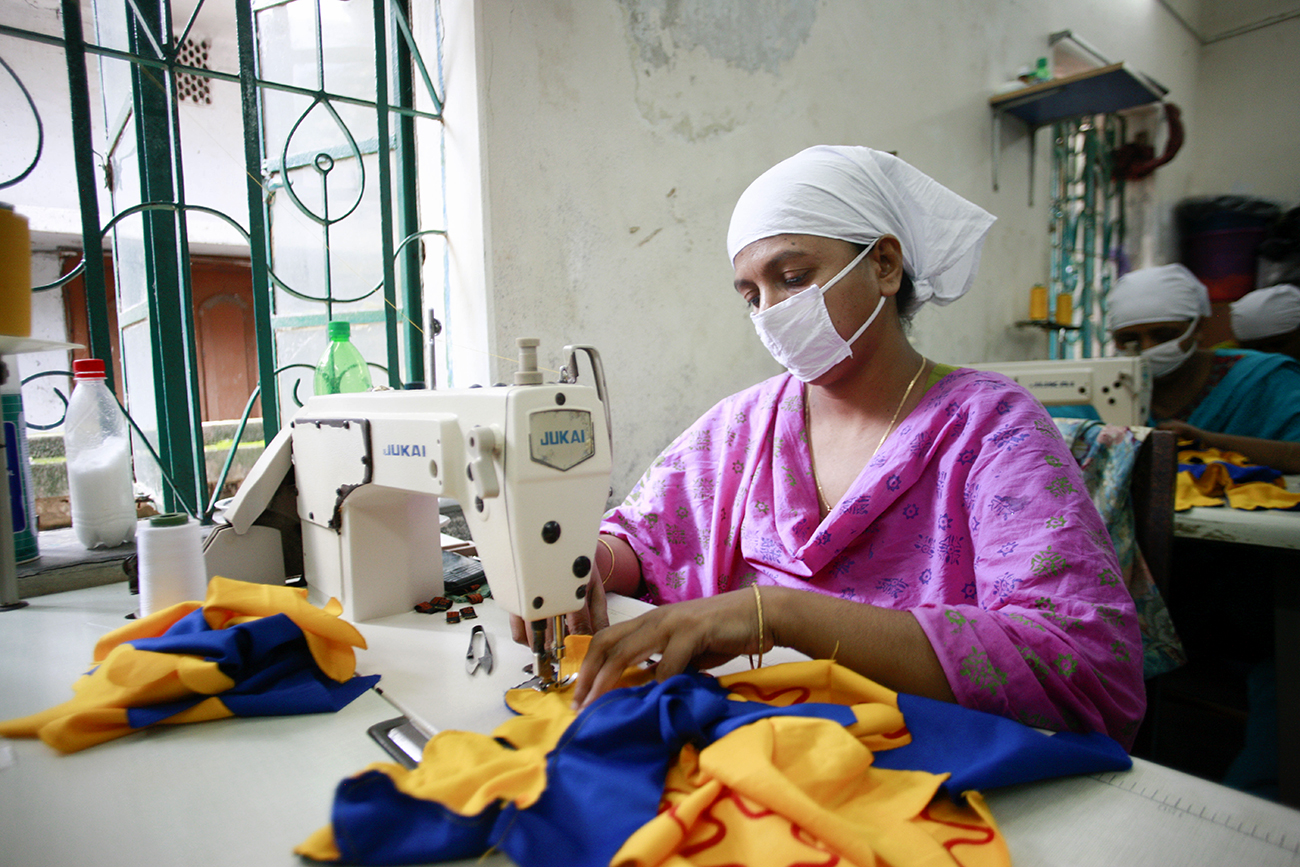
Bangladesh has one of the fastest growing economies in the world.
ZUMA Press/Global Look PressDespite rising security concerns and internal disruptions, the Sheikh Hasina-led government of Bangladesh, has been strongly focusing on economic growth and development by opening up the country's economy to foreign investors, easing the process of doing business, promoting exports and developing the country's infrastructure.
Until recently, Russia's presence in modern Bangladesh's economic scene was negligible despite the fact that it has historically been considered an important partner.
The Soviet Union assisted in restoring and setting up new infrastructure projects in Bangladesh after it gained Independence in 1971.
For the first time since the collapse of the Soviet Union, things are looking up for Russia-Bangladesh trade.
In an exclusive interview with RBTH on the sidelines of the Gateway of India Dialogue held in Mumbai earlier this month Mohammed Shahriar Alam, State Minister of Foreign Affairs of Bangladesh said cooperation between Bangladesh and Russia is growing, especially in government-to-government sectors.
“We have undertaken the single largest project in the history of Bangladesh with the help of the Russian government where the funding is expected to reach $11 billion,” Alam said.
“This state loan is for the first ever nuclear power plant (in Bangladesh) and that is followed by trade and investment from Gazprom in the energy sector, mostly exploration of gas.”
Russia and Bangladesh signed a deal for the 2400-megawatt Rooppur nuclear power plant in 2013. The first ever nuclear power plant in Bangladesh is being developed by the ASE Group of Companies (ASE), part of Russia’s state-owned Rosatom on the eastern shore of Padma River, 160 kilometres northwest of Dhaka.
The nuclear power plant consists of two VVER power units, each with a capacity of 1200 MW. The first unit is expected to be commissioned by 2022 and the second by 2023.
The data from Russia’s Federal Customs Service reveals the volume of bilateral trade between Russia and Bangladesh crossed $1.4 billion in 2016, almost double since 2012. Bangladesh has been traditionally exporting seafood, jute and jute products, tea, leather, home textiles and ready-made garments to Russia.
Russia’s exports to Bangladesh are dominated by cereals (around 58 per cent), machinery and mechanical equipment, metals, minerals and fertilizers, chemical and forestry products.
Despite bilateral trade figures remaining rather negligible, cooperation in the energy and power sector has widened considerably in the recent past. Currently, around 20 per cent of Bangladesh’s total electricity output is provided by two power plants in Ghorasal and Siddhirganj, both constructed with Soviet assistance in the 1970s.
Gazprom International, a part of Gazprom holding specializing in implementing upstream-projects outside Russia, has been operating in Bangladesh since 2012. By mid-2016, the company completed work on two drilling contracts signed with Bangladesh Petroleum Exploration and Production Company Ltd (BAPEX), Bangladesh Gas Fields Company Ltd (BGFCL) and Sylhet Gas Fields Ltd (SGFL). In total, the Russian company has designed and built 15 wells in six different fields across Bangladesh with more than 50,000 metres drilled in total.
Gazprom International and Petrobangla are currently looking into opportunities to continue cooperation in the field of production drilling considering the positive results achieved earlier.
Telecommunications is another sector where Russian companies managed to make a considerable impact in Bangladesh over the past seven years.
Banglalink, one of the country's largest telecom operators is owned by Egypt-based Global Telecom Holding, which is 51.9 per cent owned by VimpelCom Ltd, world's sixth largest operator founded in 1992 in Russia.
Today VimpelCom Ltd. whose largest shareholders are Russian billionaire Mikhail Fridman’s LetterOne (47.9 per cent) and Norway’s Telenor (23.7 per cent), is an Amsterdam-based holding with operation in more than 12 countries, including Russia, Ukraine, Armenia and Bangladesh.
Although the scale of cooperation between Russia and Bangladesh is far smaller when it comes to business-to-business interactions, the private sector’s mutual interest in exploring investment and trade opportunities is increasing, Bangladesh’s State Minister for Foreign Affairs believes.
“Opportunities are huge, we need to have a banking relationship with Russia and that’s something we have communicated at the government level, and concerned authorities are looking at it,” Alam said. “So Russia is a very important partner for the economic development of Bangladesh, as she was in the very beginning of our existence post 1971.”
Alam added that Bangladesh and Russia are now expected to sign a few agreements that would pave the way for stronger and deeper economic and political relations.
This is an abridged version of an article, first published by the Russia&India Report.
If using any of Russia Beyond's content, partly or in full, always provide an active hyperlink to the original material.
Subscribe
to our newsletter!
Get the week's best stories straight to your inbox